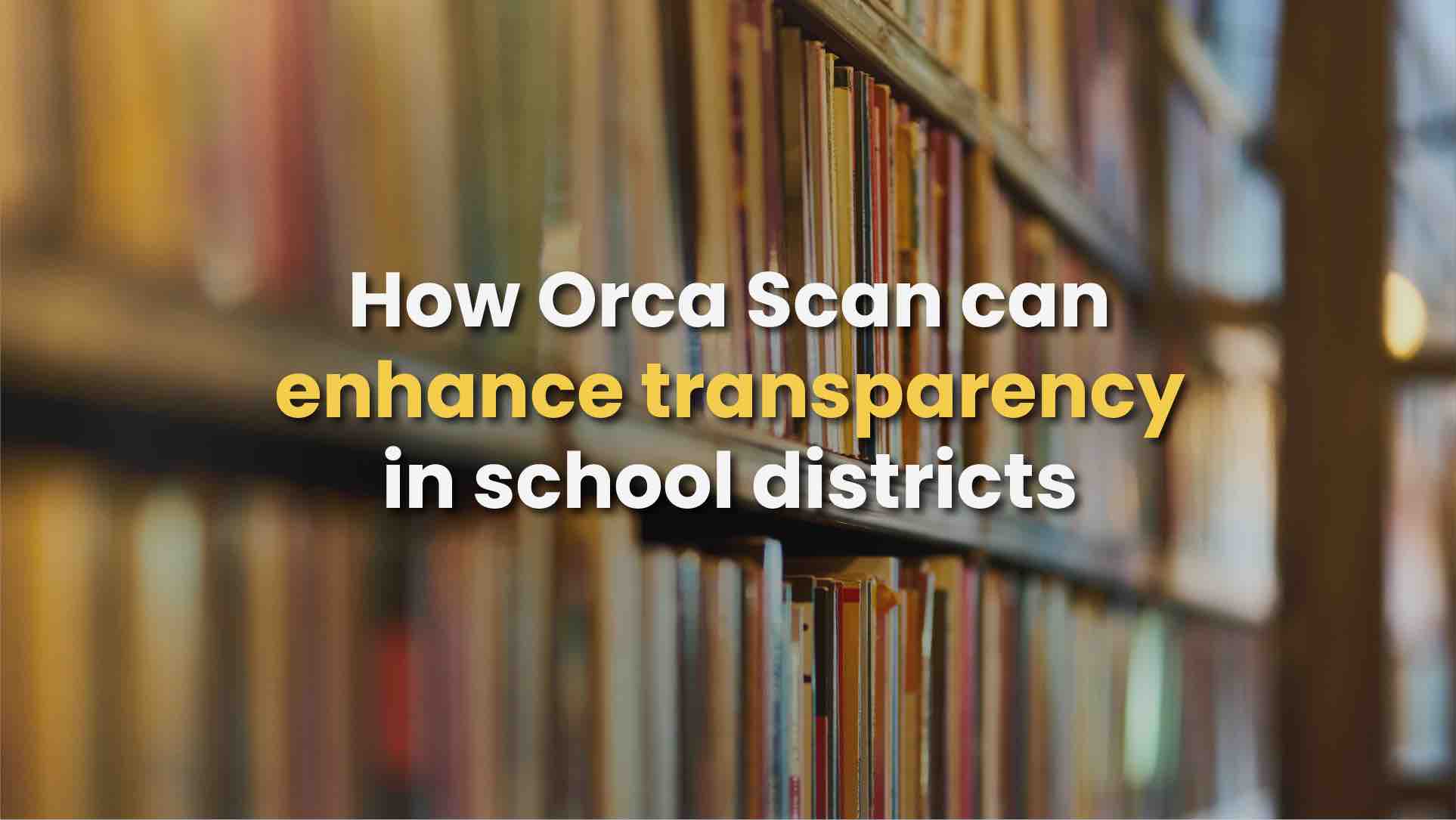
In March 2022, Florida signed House Bill 1467 into law, requiring school districts to be transparent in their selection of instructional, library and reading materials, and they aren’t alone. Similar bills are already enacted in Utah (House Bill 38) and Tennessee (House Bill 2454), and it’s currently being filed for legislation in Oklahoma. These bills aim to give parents and community members more information about the books and materials used in their children’s education and ensure they are appropriate and aligned with the district’s educational goals.
Many school districts consider book cataloguing solutions like Orca Scan to meet these requirements.
What is the Orca Scan book cataloguing solution?
The Orca Scan Book Barcode Scanning solution easily implements a library management system using smartphones.
Scan the ISBN barcode, and Orca Scan automatically populates the
- Title
- Description
- Author(s)
- Publisher
- and Number of Pages
You can enter a quantity and storage location, and there you have it - a library management system. You can even share your data in real time and collaborate with others for faster data collection.
How can Orca Scan help with compliance?
Orca Scan has a powerful and user-friendly book cataloguing solution that helps school districts manage and track their instructional, library and reading materials. The solution allows teachers to scan the book’s barcode, automatically creating a database of detailed information, including title, author, publisher, publication date, and more.
This information is easily accessible to parents, teachers, and community members, who can review it to ensure that the materials used in their schools are appropriate and aligned with the district’s educational goals.
By scanning the barcode on a book, or an ISBN barcode, schools can quickly and easily add new books to their inventory without manually entering information about each one. This saves time and reduces the risk of errors while ensuring that the district’s inventory is always up-to-date and accurate.
You can find out more about ISBN barcodes in our dedicated blog.
What are the Consequences of Non-Compliance with these Bills?
At the time of publication, these bills do not impose penalties on educators. It instead mandates that only approved books be included in any school or classroom library and that approval must come from a certified media specialist.
However, failing to comply with state law can result in various consequences, including fines, legal action, and negative publicity. In some cases, a district’s failure to comply with the law may lead to a loss of funding or other resources, which could significantly impact the district’s ability to provide quality education to its students.
Suppose a school district needs to be more transparent in its selection of instructional materials and library and reading materials. In that case, it may have repercussions which could result in a loss of trust and confidence in the district, ultimately damaging its reputation among parents and the wider state.
Therefore, it is essential for school districts to comply with the provisions of these Bills and to be transparent in their selection of reading materials. By doing so, districts can ensure that they comply with the law and maintain the trust and confidence of parents and community members.
Let’s get compliant
Orca Scan’s Book Cataloging Solution is a powerful tool that helps school districts comply with educational transparency Bills across states. It provides an easy-to-use solution for districts to manage and track their instructional, library and reading materials while promoting transparency and accountability.
Whether you’re a school district administrator, teacher, or parent, Orca Scan can help you ensure that the materials used in your schools are appropriate and aligned with your district’s educational goals - book a demo, and we can get you set up, and compliant in no time!
